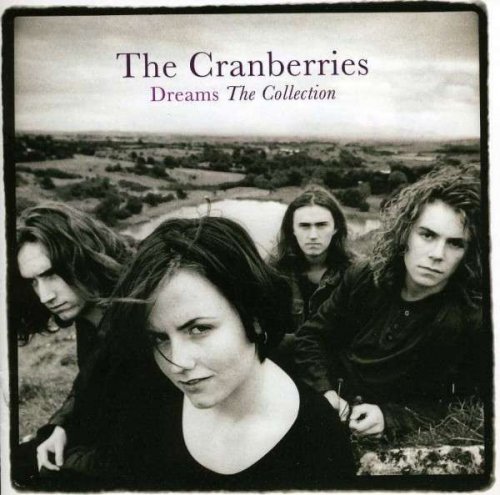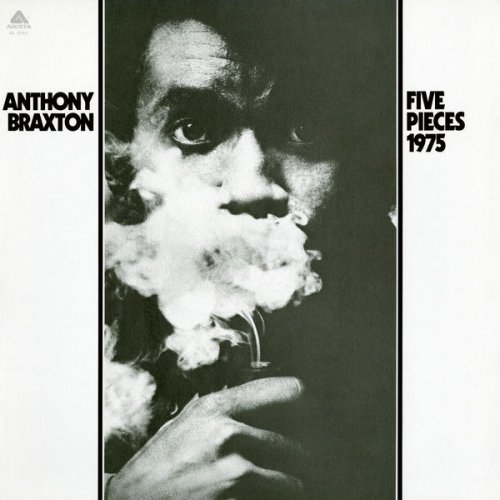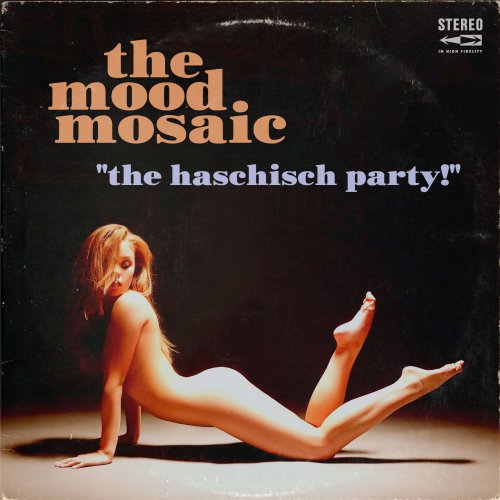The Cranberries - Dreams - The Collection (2012)

Artist: The Cranberries
Title: Dreams - The Collection
Year Of Release: 2012
Label: Spectrum Music
Genre: Rock, Pop Rock, Alternative
Quality: 320 / FLAC (tracks+.cue,log)
Total Time: 1:19:36
Total Size: 183 / 511 Mb
WebSite: Album Preview
Tracklist: Title: Dreams - The Collection
Year Of Release: 2012
Label: Spectrum Music
Genre: Rock, Pop Rock, Alternative
Quality: 320 / FLAC (tracks+.cue,log)
Total Time: 1:19:36
Total Size: 183 / 511 Mb
WebSite: Album Preview
01. Dreams (4:34)
02. Linger (4:36)
03. Zombie (5:07)
04. Ode to My Family (4:31)
05. I Can't Be With You (3:09)
06. Ridiculous Thoughts (4:32)
07. No Need to Argue (2:55)
08. Dreaming My Dreams (3:38)
09. Daffodil Lament (6:08)
10. Salvation (2:24)
11. Free to Decide (4:25)
12. When You're Gone (3:52)
13. Hollywood (4:18)
14. Promises (3:31)
15. Animal Instinct (3:31)
16. Just My Imagination (3:42)
17. You and Me (3:18)
18. Analyse (4:07)
19. Time Is Ticking Out (3:01)
20. This Is the Day (4:17)
Nostalgia can be a potent thing. A short while ago I was sat on the sofa with my partner, when a song started playing over some television closing credits. “Is this The Cranberries?”. “Yeah, I think so.” “I’ve not thought about them in years.”. This was of course nonsense, as I was saddened to hear of the passing of Dolores O'Riordan when it hit the news in the opening weeks of 2018, but the nostalgia bullet had not hit me at the time.
Thing was, although I knew of The Cranberries once they had hit it big with 1993’s Everybody Else Is Doing It, So Why Can't We?, and heard their music regularly on the radio through the rest of the 90s, I was never really bothered enough to check out any of their albums. I don’t think it was possible to be ignorant of The Cranberries if you had even the vaguest interest in music in the 90s, because they were huge. Perhaps it was this omnipresence that was the root of my resistance to check out their music. It was played on the radio all the time. It was okay. I didn’t mind it.
Then, at the close of the 90s, The Cranberries’ popularity dropped like a stone for reasons I still can’t put my finger on. The singles from 2001’s Wake Up and Smell the Coffee bombed everywhere except Italy, and the once surefire top ten album act didn’t even scrape into the top 60. Very Odd. The Cranberries then went hiaitus, with front woman and band focal point O’Riordan carving out a solo career and the other three members of the band joining other groups, but maintaining their ghostly anonymity.
Dreams: The Collection covers the career of The Cranberries from their world-conquering debut, up to their hiaitus, and as a primer for those that can recall the big hits, it’s a cheap and effective re-introduction to the band. It opens with the killer trio of “Dreams”, “Linger” and “Zombie”, the three Cranberries songs that I have the greatest nostalgia for, though both “Promises” and “Ode to my Family” both hit the 90s nostalgia spot as well.
It’s only when checking out the written discography of The Cranberries that I realised that they never had a top ten hit in the UK. In fact, they only had five top 20 hits here. This is really surprising to me, because “Dreams”, “Linger” and “Zombie” seemed to omnipresent through my mid to late teens, but maybe it only seemed like that because Britpop held sway in the UK at the time, and The Cranberries were one of the few bands from outside of that scene that got much in the way of airplay. In fact, The Cranberries were one of the few new bands of the 90s from outside of America to achieve genuinely global success, with each of their first three albums being immense global successes, and even 1999’s Bury the Hatchet enjoying strong sales, and boasting their final UK top 40 hit with “Promises”.
Seven of Dreams' 20 tracks are taken from 1994’s No Need to Argue, The Cranberries’ biggest album in terms of global sales, with Everybody Else Is Doing It, So Why Can’t We? being oddly under-represented by just two tracks. Perhaps this is an attempt to put a little more focus on the three later albums that Dreams covers, but whatever the case, it’s a bit of a head-scratcher.
Dreams does not include any of The Cranberries’ come-back work, which given the time of its release was not surprising, as they had only released a single post-come-back album by that point. As it turned out, each of the post-come-back albums was more successful than the last, with In the End seeing them return one last time to the UK top 10 following O’Riordan’s sad death and her bandmates unilaterally agreeing to break up the band. This was obviously the right thing to do, as for the majority of their fans, Delores O’Riordan was The Cranberries, with her three male bandmates being pretty much anonymous despite their musical chops and the band’s global success.
The Cranberries were not an act I was ever destined to obsess over, but every now and then I appreciate the nostalgia hit that their music provides, and Dreams delivers that in a simple and inexpensive package.
Thing was, although I knew of The Cranberries once they had hit it big with 1993’s Everybody Else Is Doing It, So Why Can't We?, and heard their music regularly on the radio through the rest of the 90s, I was never really bothered enough to check out any of their albums. I don’t think it was possible to be ignorant of The Cranberries if you had even the vaguest interest in music in the 90s, because they were huge. Perhaps it was this omnipresence that was the root of my resistance to check out their music. It was played on the radio all the time. It was okay. I didn’t mind it.
Then, at the close of the 90s, The Cranberries’ popularity dropped like a stone for reasons I still can’t put my finger on. The singles from 2001’s Wake Up and Smell the Coffee bombed everywhere except Italy, and the once surefire top ten album act didn’t even scrape into the top 60. Very Odd. The Cranberries then went hiaitus, with front woman and band focal point O’Riordan carving out a solo career and the other three members of the band joining other groups, but maintaining their ghostly anonymity.
Dreams: The Collection covers the career of The Cranberries from their world-conquering debut, up to their hiaitus, and as a primer for those that can recall the big hits, it’s a cheap and effective re-introduction to the band. It opens with the killer trio of “Dreams”, “Linger” and “Zombie”, the three Cranberries songs that I have the greatest nostalgia for, though both “Promises” and “Ode to my Family” both hit the 90s nostalgia spot as well.
It’s only when checking out the written discography of The Cranberries that I realised that they never had a top ten hit in the UK. In fact, they only had five top 20 hits here. This is really surprising to me, because “Dreams”, “Linger” and “Zombie” seemed to omnipresent through my mid to late teens, but maybe it only seemed like that because Britpop held sway in the UK at the time, and The Cranberries were one of the few bands from outside of that scene that got much in the way of airplay. In fact, The Cranberries were one of the few new bands of the 90s from outside of America to achieve genuinely global success, with each of their first three albums being immense global successes, and even 1999’s Bury the Hatchet enjoying strong sales, and boasting their final UK top 40 hit with “Promises”.
Seven of Dreams' 20 tracks are taken from 1994’s No Need to Argue, The Cranberries’ biggest album in terms of global sales, with Everybody Else Is Doing It, So Why Can’t We? being oddly under-represented by just two tracks. Perhaps this is an attempt to put a little more focus on the three later albums that Dreams covers, but whatever the case, it’s a bit of a head-scratcher.
Dreams does not include any of The Cranberries’ come-back work, which given the time of its release was not surprising, as they had only released a single post-come-back album by that point. As it turned out, each of the post-come-back albums was more successful than the last, with In the End seeing them return one last time to the UK top 10 following O’Riordan’s sad death and her bandmates unilaterally agreeing to break up the band. This was obviously the right thing to do, as for the majority of their fans, Delores O’Riordan was The Cranberries, with her three male bandmates being pretty much anonymous despite their musical chops and the band’s global success.
The Cranberries were not an act I was ever destined to obsess over, but every now and then I appreciate the nostalgia hit that their music provides, and Dreams delivers that in a simple and inexpensive package.
![The Baroque Jazz Ensemble - The Baroque Jazz Ensemble (feat. Ira Schulman) (2025) [Hi-Res] The Baroque Jazz Ensemble - The Baroque Jazz Ensemble (feat. Ira Schulman) (2025) [Hi-Res]](https://img.israbox.com/img/2025-12/19/yehoqbmzkuwk180c26lz85clx.jpg)
![Frank Sinatra, Count Basie - It Might As Well Be Swing (1964) [2021 SACD] Frank Sinatra, Count Basie - It Might As Well Be Swing (1964) [2021 SACD]](https://www.dibpic.com/uploads/posts/2025-12/1766090910_scan-1.jpeg)

![Richard Carr, Czech National Symphony Orchestra, Vladimir Martinka - Richard Carr: The Leap (2025) [Hi-Res] Richard Carr, Czech National Symphony Orchestra, Vladimir Martinka - Richard Carr: The Leap (2025) [Hi-Res]](https://img.israbox.com/img/2025-12/22/0ruhq82oeu9h4oypzf8u61qbv.jpg)

![Bill Evans, Jim Hall - Undercurrent (1962) [2025 SACD] Bill Evans, Jim Hall - Undercurrent (1962) [2025 SACD]](https://www.dibpic.com/uploads/posts/2025-12/1766416853_essj-90317-2.jpg)

![Elmer Bernstein - Movie and TV Themes (1962) [1987] Elmer Bernstein - Movie and TV Themes (1962) [1987]](https://www.dibpic.com/uploads/posts/2025-12/1766269303_folder.jpg)
